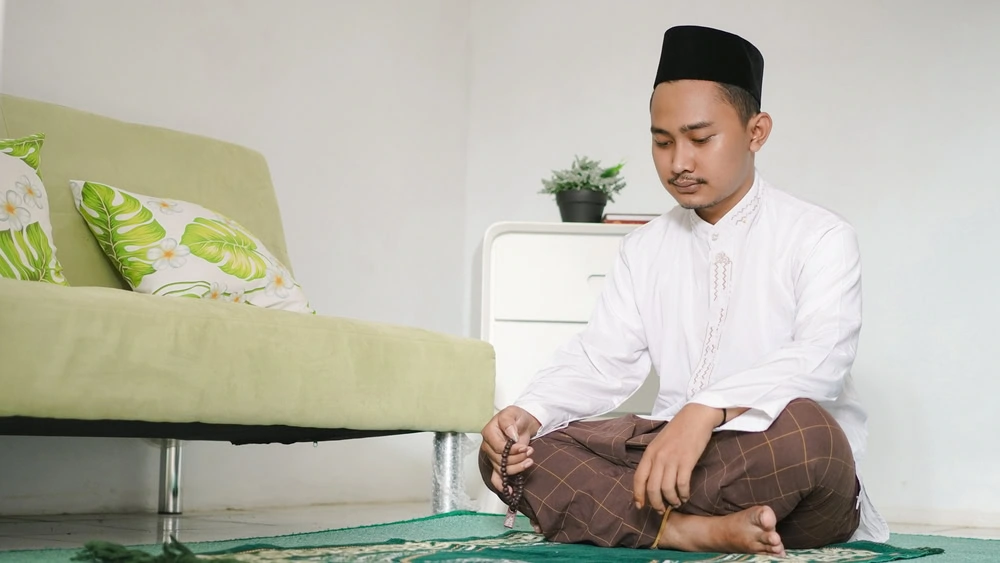Can I Engage in Remembrance and Supplication If I Owe Neglected Missed Prayers?
Answered by Shaykh Irshaad Sedick
Question
I am currently making up several years’ worth of missed obligatory prayers and am keen to maintain a balanced approach to my spiritual practices. I have learned that one must not pray voluntary prayers while still having missed obligatory ones to make up.
In light of this, I would appreciate clarification on whether it is permissible for me to engage in Dhikr and Dua (e.g., morning and evening adhkar) while actively working to make up the missed prayers. I am eager to incorporate these acts of worship into my routine, but I want to ensure that I follow Shafi‘i jurisprudence.
Answer
In the Name of Allah, the Most Merciful and Compassionate. May Allah alleviate our difficulties and guide us to what pleases Him. Amin.
The Shafi‘i ruling in question generally refers to supererogatory prayers, not other acts of devotion such as remembrance, supplication, Quran recitation, and salutations on the Prophet (Allah bless him and give him peace), etc. You may continue these noble acts.
Still, the ruling prioritises making up one’s missed prayers and minimising time spent on non-essential activities, because neglecting obligatory prayers is a severe matter. Based on this, we advise that you keep extra devotional acts to a reasonable limit while giving most of your attention to your prayer debt, and Allah knows best.
Voluntary Worship While Owing Neglected Obligatory Prayers
The Shafi‘i School considers it obligatory to immediately make up missed prayers (missed without a valid excuse). Part of the wisdom for the immediacy in this ruling is the disciplinary measure for neglecting the foremost bodily worship, the prayer. [Hammadi, Fath al-Wahhab al-Malik]
Following the above, the Shafi‘i School holds that an individual who owes make-up prayers that were missed without a valid excuse must devote all their time to this task. This means that besides the individual’s obligatory duties or physiological needs, all their time should be used to make up for their missed prayers. It is not permissible for this person to engage in supererogatory devotional acts until they have fulfilled their debt to Allah (Most High). [Ba‘ishn, Bushra al-Karim]
Pacing Years of Prayer Debt
Many contemporary Shafi‘i and Hanafi scholars advise those who repent after years of neglect and owe years of make-up prayers to calculate their prayer debt and pace themselves in fulfilling this debt to avoid burnout and potentially further neglect.
Suppose someone following the above guidance in this matter prays one obligatory prayer in addition to every current obligatory prayer and still manages to pray some supererogatory prayers, engage in dhikr, supplication, recitation, etc. In that case, I see no harm in the person doing so. Please read this related answer by Shaykh Faraz Rabbani, explaining a similar view from the Hanafi School’s perspective.
As long as the fulfilment of the missed prayers remains one’s priority, albeit according to a calculated plan spanning a few years, I believe this would be permissible and praiseworthy.
Suspending Supererogatory Acts of Devotion
Suppose a person owing unexcused missed prayers does not follow through with the immediacy as a disciplinary measure (due to its difficulty) but still restricts their devotional worship to the obligatory acts with a limited number of make-up prayers and no Sunnas. In that case, this results in a counterproductive result of fewer devotional acts overall and potential spiritual gaps, and Allah knows best.
I pray this is of benefit and that Allah guides us all.
[Shaykh] Irshaad Sedick
Checked and Approved by Shaykh Muhammad Abu Bakr Badhib
Shaykh Irshaad Sedick was raised in South Africa in a traditional Muslim family. He graduated from Dar al-Ulum al-Arabiyyah al-Islamiyyah in Strand, Western Cape, under the guidance of the late world-renowned scholar Shaykh Taha Karaan.
Shaykh Irshaad received Ijaza from many luminaries of the Islamic world, including Shaykh Taha Karaan, Mawlana Yusuf Karaan, and Mawlana Abdul Hafeez Makki, among others.
He is the author of the text “The Musnad of Ahmad ibn Hanbal: A Hujjah or not?” He has served as the Director of the Discover Islam Centre and Al Jeem Foundation. For the last five years till present, he has served as the Khatib of Masjid Ar-Rashideen, Mowbray, Cape Town.
Shaykh Irshaad has thirteen years of teaching experience at some of the leading Islamic institutes in Cape Town). He is currently building an Islamic online learning and media platform called ‘Isnad Academy’ and has completed his Master’s degree in the study of Islam at the University of Johannesburg. He has a keen interest in healthy living and fitness.
